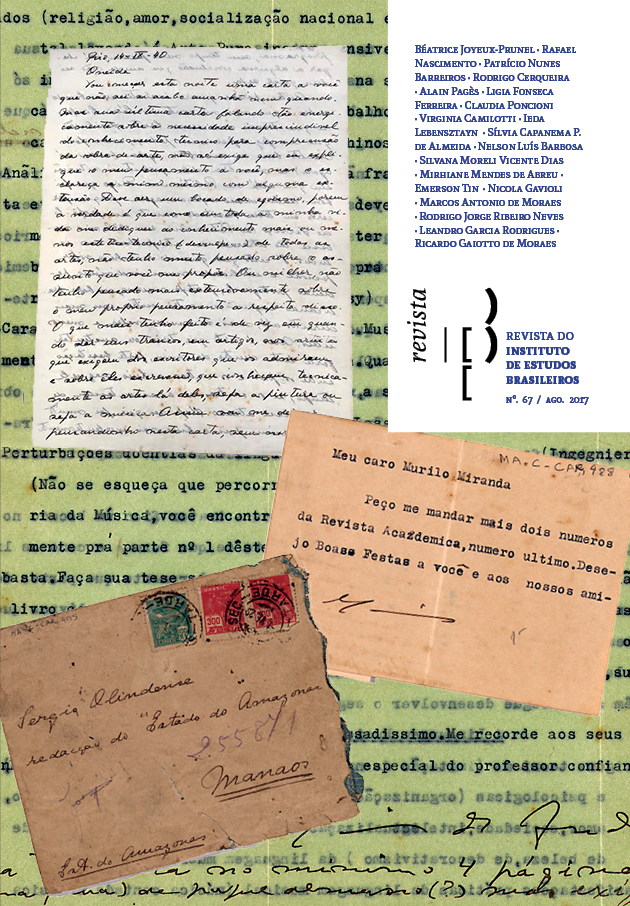Letters, slaves and women: three versions of a same trope
DOI:
https://doi.org/10.11606/issn.2316-901X.v0i67p81-101Keywords:
Brazilian ficcion, trope, Joaquim Manuel de Macedo, José de Alencar, Machado de AssisAbstract
This paper intends to study and explain a literary trope – a domestic slave as the bearer of a love letter – and its modifications in three nineteenth-century Brazilian works, namely: Rosa (1849), b y Joaquim M anuel de Macedo; O demônio familiar (1857), by José de Alencar; and, last, Iaiá Garcia (1878), by Machado de Assis. By using a slave as t he bearer of a love letter, these writers discuss, in different ways, all historically determined, the same social problem, which concerns patriarchal authority and its dissolution throughout nineteenth-century.Downloads
Download data is not yet available.
Downloads
Published
2017-08-31
Issue
Section
Articles
License
- Todo o conteúdo do periódico, exceto onde está identificado, está licenciado sob uma Licença Creative Commons do tipo atribuição CC-BY.
How to Cite
Cerqueira, R. (2017). Letters, slaves and women: three versions of a same trope. Revista Do Instituto De Estudos Brasileiros, 67, 81-101. https://doi.org/10.11606/issn.2316-901X.v0i67p81-101



